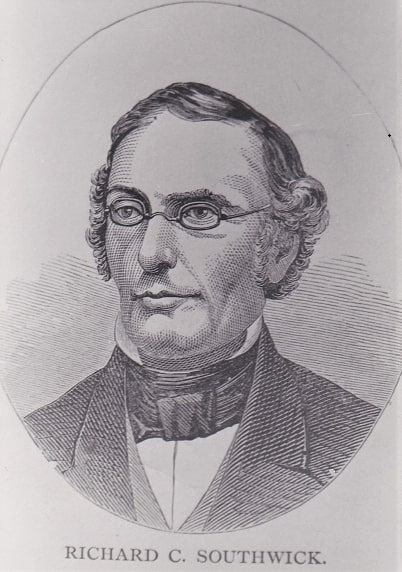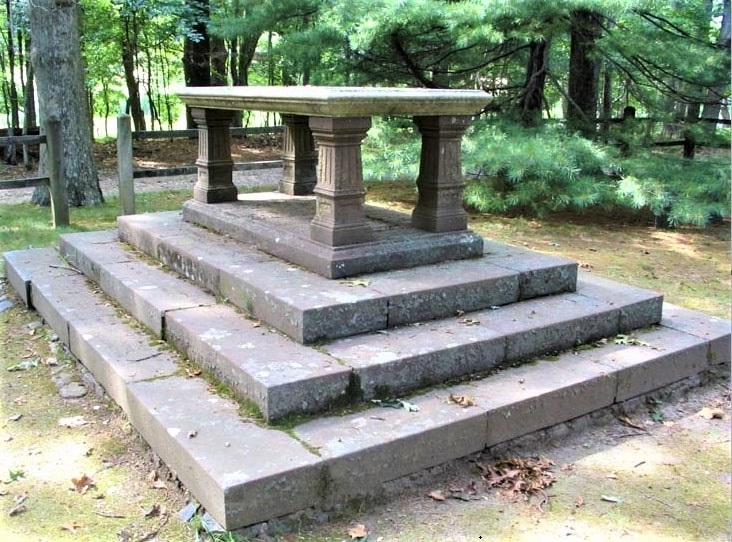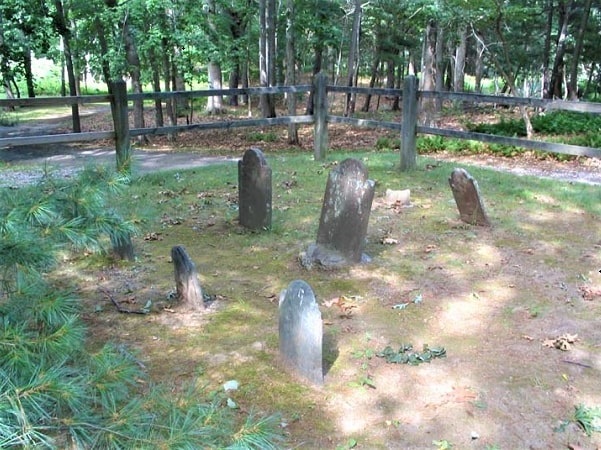Introduction: In this article, Melissa Davenport Berry continues her story about the persecution of Quakers by the 17th century Puritan authorities, focusing on a letter written in 1660. Melissa is a genealogist who has a blog, AnceStory Archives, and a Facebook group, New England Family Genealogy and History.
In 1854 the Albany Evening Journal reprinted a letter dated 4 September 1660, written by John Smith from the House of Correction in Boston, Massachusetts, to Joshua Buffum and others at Shelter Island, New York. Smith and Buffum, residents of Salem, Massachusetts, were Quakers who endured persecution for their faith.

In this letter Smith summarized the plight of the Quakers in Massachusetts to his Friends seeking refuge (after banishment from Salem) at Shelter Island on the land of Nathaniel Sylvester, the “Lord of Shelter” for many 17th century persecuted Quakers. Smith married Margaret, sister of Joshua.
Buffum, along with Lawrence and Cassandra Southwick and their son Josiah, were ordered by the court in March 1659 to depart the colony or suffer pain of death.

Lawrence and Cassandra Southwick died at Shelter Island in May 1660. The other two exiles (Joshua Buffum and Josiah Southwick) eventually returned to Salem.
A descendant of both the Buffum and Southwick lines, Richard C. Southwick, son of Quakers Zadock and Elizabeth (Carpenter) Southwick, had the original letter.
Here is a recap of this letter:
Joshua Buffum, dear brother, this is to let thee understand, and all friends with thee, how many of us are here in prison at this time.
Nicholas Upshall, imprisoned for fourteen months, being formally banished upon his returning – to remain in prison all his lifetime as they say.
William Ledra, was banished at the Court of Assizes for returning after some time to visit us here in the prison.
Joseph Nicholson and his wife [Jane w/child], who came to take passage to go for England, was had before the court and his liberty granted to go away, and a boat pressed to carry him on board the ship at Nantucket. The master of the ship refused to carry him. He came up to Boston again and went before the Governor; desired to have prison room or some other private house to be in till there was another opportunity to go.
William Ledra was called forth also, and demanded [asked] whether he would go for England; he answered he had no occasion to go for England, therefore could not go; they said he should go somewhere else, then; he asked whither, some answered to the gallows, so he was brought to the prison again, and here doth remain.
Edward Wharton, who was brought to the prison for not going to their “meeting” [church service] as they call it.
John Chamberlain, of the town of Boston, imprisoned for declaring against the minister of Charleston, in public.
Robert Harper and his wife [Deborah Perry], imprisoned for coming to visit us here in prison.
My wife [Margaret Buffum] and Mary [Southwick] Traske, imprisoned the 12th day of the 12 month, 1659, and here kept ever since, only Mary Traske was at home two months of the time, through her husband’s [William] pleading with the Governor [Endicott], who imprisoned both of them for meeting at Edward Wharton’s house, and for making disturbance before they had done, as they say, being moved of the Lord to speak, not knowing but that it was done.
William King, imprisoned at the same time, was banished, and so departed to Rhode Island not long after, for the same cause.
Provided Southwick, imprisoned also for the same meeting, in Ipswich prison, and let out the County Court at Ipswich to answer at Salem Court on the 9th month.
And I was put in prison for making disturbance on the day of ordination, being moved of the Lord to declare against them therein; imprisoned the 6th day of the 7th month, 1660, and here now must remain all winter, for ought we know.
It is important to note that Smith was not an original follower of the Quaker faith. In fact, he assisted the constable in the raid on a Quaker meeting held at the Phelps’ home in Salem in 1658. His wife was at the meeting.
At some point Smith embraced the faith and “came out” a fervent defender. Carla Gardina Pestana, in Quakers and Baptists in Colonial Massachusetts, wrote that Smith sent a scathing letter to Governor Endicott when his wife was in prison for over six months, and caused an uproar during the ordination of Rev. John Higginson. He shouted, “What you are going to set up, our God is pulling down.” (p. 36)
Note: Just as an online collection of newspapers, such as GenealogyBank’s Historical Newspaper Archives, helped tell the stories of the 17th century Quakers, they can tell you stories about your ancestors that can’t be found anywhere else. Come look today and see what you can discover!
Related Articles:
- Nathaniel Sylvester, ‘Lord of Shelter’ for 17th Century Quakers
- A Monument for Persecuted Quakers Upsets Salem, MA
- Persecuted Quakers in Colonial America
- Persecuted Quakers in Colonial America, Part II
- Persecuted Quakers in Colonial America, Part III
- Early Quaker Meetings Raided by Salem Authorities
- Rare Quaker Bible from Early Colonial Days
